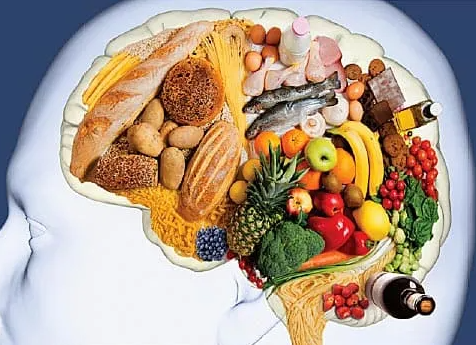Taking care of your brain is much like caring for a garden. It requires consistent attention, the right nutrients, and habits that nurture growth. The foods we consume every day play a critical role in how our brains function, both now and in the future. By making thoughtful choices about what we eat, we can support memory, focus, mood, and cognitive resilience well into later life. Understanding the principles behind a brain-friendly diet is the first step toward long-term mental wellness.
A diet that supports brain health focuses on balance, variety, and nutrient density. Unlike short-term fads that promise instant boosts, long-term brain nutrition is about sustainable habits. Foods rich in antioxidants, healthy fats, vitamins, minerals, and high-quality proteins provide the building blocks that your brain needs to maintain structure, optimize communication between neurons, and protect against age-related decline. These nutrients work together to support neuroplasticity, the brain’s ability to adapt, learn, and recover from stress.
One of the most important nutrients for the brain is omega-3 fatty acids, which are found in fatty fish such as salmon, mackerel, and sardines. Omega-3s help build cell membranes in the brain, support healthy neurotransmission, and reduce inflammation that can interfere with cognitive function. If fish is not regularly available, plant-based sources such as flaxseeds, chia seeds, and walnuts also provide beneficial fats, though in a different form that the body must convert into the active omega-3 compounds. Including these foods several times a week can contribute to sharper thinking and better memory.
Antioxidants are another key player in maintaining long-term brain function. These compounds fight oxidative stress, a process that can damage neurons and accelerate cognitive decline. Brightly colored fruits and vegetables, such as blueberries, strawberries, spinach, kale, and bell peppers, are rich in antioxidants and polyphenols. Studies have shown that people who consume a variety of these foods regularly often experience improved memory and slower rates of cognitive decline as they age. Small daily servings of berries or a generous portion of leafy greens at lunch or dinner can make a meaningful difference over time.
Beyond fats and antioxidants, the brain thrives on nutrients that support energy production and neurotransmitter synthesis. Whole grains, such as oatmeal, brown rice, quinoa, and whole wheat products, provide a steady release of glucose, which is the brain’s main energy source. Unlike refined sugars and highly processed snacks, whole grains help maintain stable blood sugar levels, preventing the fatigue and mood swings that can interfere with focus and productivity. Regularly including these foods in meals allows your brain to function optimally throughout the day.
Protein intake is equally important for brain health. Amino acids, the building blocks of proteins, are essential for producing neurotransmitters, the chemical messengers that influence mood, motivation, and cognitive function. Sources of high-quality protein, such as lean meats, eggs, dairy products, legumes, and tofu, should be included in every meal. By ensuring that your body has enough protein, you provide the materials needed for your brain to communicate efficiently and maintain a strong neural network.
Micronutrients, including vitamins and minerals, have a profound impact on cognitive performance. Vitamin E, found in nuts, seeds, and green leafy vegetables, protects neurons from oxidative stress. B vitamins, especially B6, B12, and folate, are crucial for energy metabolism and the synthesis of neurotransmitters. Iron, zinc, magnesium, and iodine also play supporting roles in memory, attention, and learning. Eating a diverse diet that includes a variety of fruits, vegetables, nuts, seeds, lean proteins, and whole grains helps ensure that your brain receives these vital nutrients.
Hydration is another often-overlooked aspect of brain health. Even mild dehydration can impair attention, short-term memory, and mood. Water is essential for maintaining the proper balance of electrolytes and for supporting the flow of nutrients to brain cells. Herbal teas and water-rich foods like cucumbers, melons, and oranges can contribute to overall hydration while also providing additional vitamins and antioxidants.
Mindful eating practices further enhance long-term brain function. This means not just focusing on what you eat, but also on how you eat. Eating slowly, savoring flavors, and paying attention to hunger and fullness cues can improve digestion, nutrient absorption, and even cognitive performance. Additionally, planning meals ahead of time and minimizing processed foods helps reduce excessive sugar, unhealthy fats, and additives that can interfere with brain function over time.
Sleep and stress management complement a brain-healthy diet. While these are not foods, they interact closely with nutrition. Poor sleep and chronic stress increase inflammation and oxidative stress in the brain, counteracting the benefits of a nutritious diet. Prioritizing rest, practicing relaxation techniques, and staying physically active work synergistically with healthy eating to maintain cognitive function.
Incorporating a variety of these habits does not require dramatic changes all at once. Simple adjustments, such as adding a handful of nuts to your breakfast, choosing whole grains instead of refined products, including leafy greens with lunch, and eating fatty fish a couple of times per week, can accumulate into significant long-term benefits. The key is consistency rather than perfection. Over time, these small, manageable choices strengthen the brain’s resilience and help preserve mental sharpness.
In conclusion, eating for healthy brain function in the long term is about embracing nutrient-rich foods, maintaining balanced energy levels, staying hydrated, and practicing mindful eating. Prioritizing omega-3 fatty acids, antioxidants, protein, vitamins, and minerals, while limiting processed foods and refined sugars, creates an environment where the brain can thrive. These habits not only support memory, focus, and mood today but also lay the foundation for cognitive vitality in the years to come. Caring for your brain through thoughtful nutrition is an investment in your future, and every meal presents an opportunity to nourish the mind, enhance well-being, and promote lifelong mental agility.






